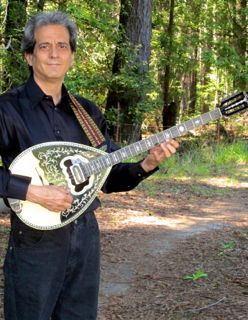 Playing a Zouk
Playing a Zouk
I wish to apologize in advance. My ingorance of the Zouk is profound. Just to limit confusion, let's just focus on the Irish Zouk, tuned CFAD. I have never attempted to play one or even held one in my hands. What little I know, or think I know, is that the lower two courses tune in octaves with the top courses parallel. How would you approach playing? Do you play with a plectrum or finger pick? Are there different styles of play? Is it mostly a solo instrument or one played in group? As I said, I know close to nothing. Thanks in advance.
Tony Huber
1930 Martin Style C #14783
2011 Mowry GOM
2013 Hester F4 #31
2014 Ellis F5 #322
2017 Nyberg Mandola #172







 Reply With Quote
Reply With Quote












Bookmarks